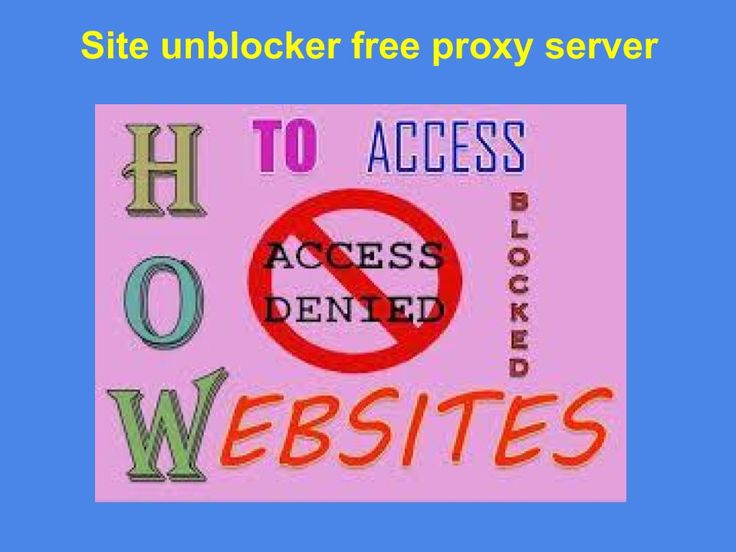Unlocking The Digital World: The Ultimate Unblocker For School
In the digital age, access to information is crucial for students seeking knowledge beyond the classroom confines. However, many schools impose strict internet restrictions to maintain focus and prevent distractions. While these policies aim to create a conducive learning environment, they can inadvertently hinder students from accessing valuable educational resources. This has led to a growing demand for an effective unblocker for school, allowing students to navigate the web freely while adhering to academic guidelines.
As students increasingly rely on the internet for research, collaboration, and learning, the need for a reliable unblocker has become more pronounced. This article explores the various options available for students looking to bypass school restrictions without compromising their educational integrity. Whether it's accessing blocked websites for academic purposes or using online platforms for group projects, the right unblocker can significantly enhance the learning experience.
In this comprehensive guide, we will delve into the features, benefits, and potential pitfalls of using unblockers for school, helping students make informed decisions. By understanding how these tools work, students can take control of their online learning environments and unlock the full potential of the internet for their studies.
What is an Unblocker for School?
An unblocker for school refers to software or tools designed to bypass internet restrictions set by educational institutions. These tools allow students to access blocked websites and resources while using school networks. Unblockers can take various forms, including browser extensions, VPNs, and proxy servers.
How Do Unblockers Work?
Unblockers function by masking the user's IP address or rerouting traffic through a different server. This process makes it appear as though the user is accessing the internet from a different location, thus circumventing geographic and institutional restrictions. Common methods include:
- VPNs (Virtual Private Networks): These encrypt internet traffic and change the user's IP address.
- Proxy Servers: These act as intermediaries between the user and the internet, hiding the user's actual IP address.
- Browser Extensions: These can modify web traffic to access blocked sites directly.
Are There Risks Involved with Using Unblockers?
While unblockers can provide access to restricted content, they also come with certain risks. Students must remain aware of potential security threats and the legal implications of using such tools. Some risks include:
- Data Privacy: Using unreliable unblockers may expose personal information to third parties.
- Malware: Some free unblockers may contain harmful software that can compromise devices.
- Disciplinary Action: Schools may impose penalties for circumventing internet restrictions.
What Are the Benefits of Using an Unblocker for School?
Despite the potential risks, there are several benefits associated with using an unblocker for school. These advantages include:
- Access to Educational Resources: Students can access a wider range of academic materials.
- Enhanced Collaboration: Unblockers facilitate communication and collaboration on group projects.
- Improved Research Opportunities: Students can explore various perspectives and sources for their assignments.
How to Choose the Right Unblocker for School?
Choosing the right unblocker requires careful consideration of several factors. Here are some tips for selecting the most appropriate tool:
- Reputation: Opt for well-reviewed and trusted unblockers to ensure safety.
- Ease of Use: Look for user-friendly interfaces that simplify access to blocked content.
- Compatibility: Ensure that the unblocker works on the devices and browsers used in school.
Can Students Use Unblockers Responsibly?
Responsibility is key when using unblockers for school. Students should consider the following guidelines:
- Follow School Policies: Adhere to the school's rules regarding internet usage.
- Use for Academic Purposes: Limit use to educational research and collaboration.
- Stay Informed: Keep up with the latest developments regarding internet safety and digital rights.
What Are Some Popular Unblockers for School?
Several unblockers have gained popularity among students. Some of the most commonly used include:
- NordVPN: Known for its strong encryption and large server network.
- Proxify: A reliable web-based proxy service.
- Hola VPN: A user-friendly option with a free version available.
Are There Alternatives to Unblockers?
In some cases, students may find alternatives to unblockers. These include:
- Requesting Access: Some schools may grant access to specific sites upon request.
- Using School Resources: Many schools provide access to databases and libraries.
- Offline Resources: Books and offline materials can supplement online research.
Conclusion: Is Using an Unblocker for School Worth It?
Ultimately, the decision to use an unblocker for school depends on individual needs and circumstances. While the potential benefits are significant, students must remain aware of the associated risks and exercise caution. By being responsible and informed, students can navigate the complexities of digital learning and unlock a world of knowledge for their academic success.
Katherine Russell: A Journey Through Her Life And Legacy
Unlocking The World Of Jameliz Only Fans: A Journey Of Creativity And Connection
Unveiling The Life Of Nanny Barron Trump: A Glimpse Into The Caregiver Of A Future Leader


